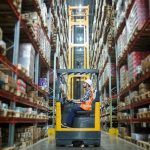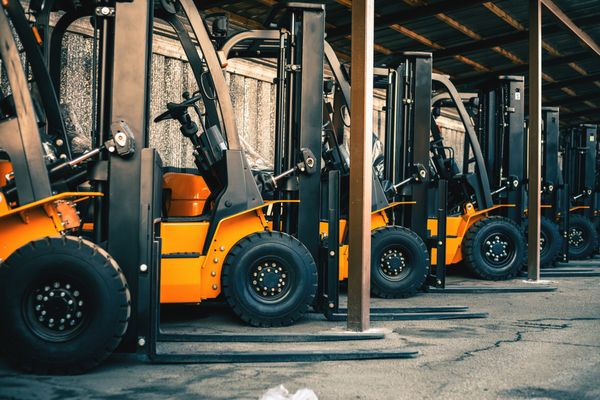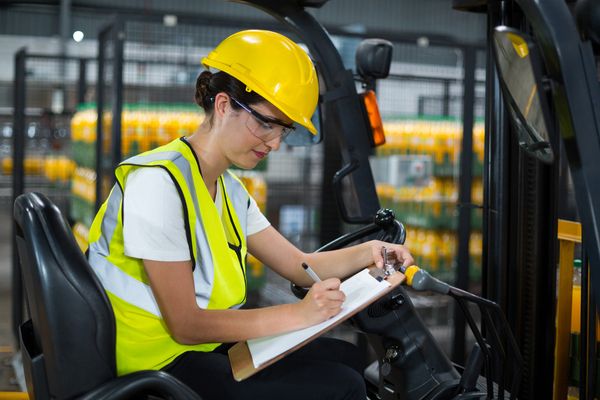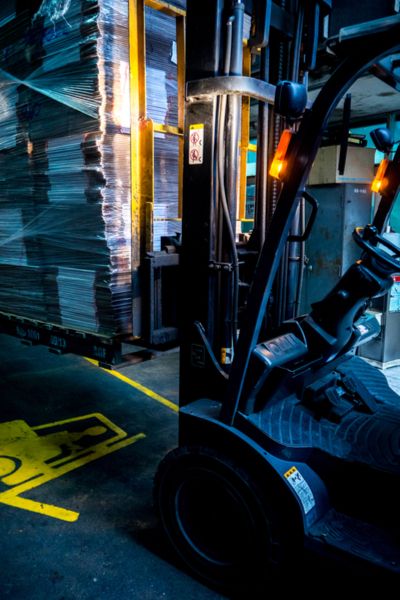
Forklift Training & Safety FAQ

The Occupational Health and Safety Act (OHSA) controls the operations of forklift and other powered-lift trucks for workplaces in Ontario. They apply to general safety inspection and maintenance, operating procedures, and load-handling assessment. More importantly, they govern the training in proper operations to avoid safety hazards associated with this powered industrial truck. It’s ideal that forklift operators, inspectors, and employers have complete knowledge of the guidelines in these regulations. Nevertheless, here are the answers to some frequently asked questions about forklift safety that will help you with daily operations.
Do I need a license to operate a forklift in Ontario?
No, you don’t. However, you need to undergo a training to pass the certification test in operating a forklift and be compliant with OHSA. Once certified, you can operate a forklift for three years, after which you have to undergo re-certification.
Are there different types of forklift training?

Yes, there are. The type of training and certification that you will take depends on the classification of the forklift:
- Class 1 – Electric Motor Rider Trucks
- Class 2 – Electric Motor Narrow Aisle Trucks, Order Pickers, Turret Trucks
- Class 3 – Electric Motor Hand Trucks, Pallet Jacks, Walkie Stacker
- Class 4 – Internal Combustion Engine Trucks – Cushion Tires Only
- Class 5 – Internal Combustion Engine Trucks – Pneumatic Tires Only
- Class 6 – Electrical and Internal Combustion Engine Tow Tractors
- Class 7 – Rough Terrain Forklift Trucks, Telescopic Forklifts (Zoom Booms)
- Class 8 – Personnel and Burden Carriers
Are there circumstances that require retraining?
Yes, retraining may be done within the three years of certification if any of the following occurs:
- When new legislation is passed.
- When there is a change in the operating environment and conditions.
- When a new equipment will be used.
- When the employer see deficits in skills and knowledge.
- When a near miss or accident occurs
What factors contribute to forklift safety hazards?
Accidents related to forklift operations are caused by five factors:
- Organizational Error – Lack of proper training, poor maintenance, and defective forklift.
- Operational factor – Excessive speed, improper operation techniques, lack of warning signals.
- Workplace Design – Poor work area traffic control, narrow and cluttered aisles, and obstructions in the area.
- Load condition – Poorly stacked load, overloading, and unstable loads.
- Mechanical problems – Malfunctioning brakes, lack of safety devices, and poor emissions.

How often should the forklift be inspected?
Operators should perform safety inspections on the forklift on a daily basis. Ideally, it should be done before each shift to make sure that it’s in good working order. Start by doing a visual check then an operational pre-use check.
What are the items included in the pre-shift inspection checklist?
Each forklift operation must start with an inspection using a checklist that the employer developed. Any defects must be reported right away to the operator’s supervisor. The pre-shift inspection checklist should include the following items:
- Fork condition and wear
- Tire condition and pressure
- Battery condition and electrolyte levels
- Fluid and fuel levels
- Steering and braking
- Limit switch operation
- Lift mechanism condition
- Chains and mast condition
- Cleanliness
What are the forklift requirements?
There are different types of forklift trucks. Each one is designed to be operated in a specific condition and environment. Employers must ensure that the powered lift truck chosen has the right features, carrying capacity, and reach capabilities to do the job. Moreover, the forklift must be equipped with the following:
- A chart showing information on maximum rated load and other load ratings.
- A guard, screen or grill that will protect the operator from any falling materials.
- A seat belt or any restraining device to ensure the safety of the operator.
- Warning lights and devices.
Can the forklift be used to raise or lower workers?
No. A powered lift truck must not be used to carry a person in any industrial establishment.
Can I use a mobile phone or smartphone when operating a Forklift?
No. Just like when driving a car, using any mobile device is a distraction and can potentially cause accidents. You will be fined by Ministry Inspectors when caught using your mobile phone while operating a forklift.
 Advanced Consulting & Training Offers Forklift Safety Training & Certification
Advanced Consulting & Training Offers Forklift Safety Training & Certification
Forklift operation presents hazards that can cause accidents in your workplace. Compliance with these regulations must be done to ensure the safety of the operator and other workers in all industrial establishments. To ensure that your work adheres to OHSA and Regulation, your operators and supervisors must undergo comprehensive forklift safety training with a reputable training company, just like Advanced Consulting & Training. We have a team of certified health & safety professionals who can deliver quality and cost-effective training solutions to suit your needs. Advanced Consulting & Training is approved and accredited by CPO, TSSA, and WSIB. Contact us today for more information relating to safety consulting and certification courses such as:


